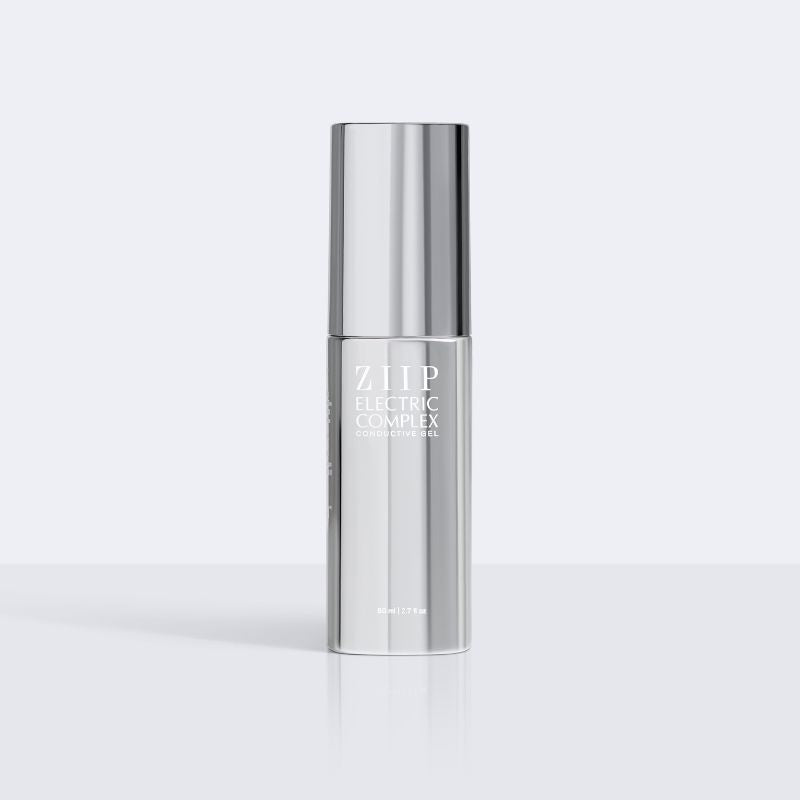I Tried a £380 Sculpting Facial Device for a Month—These Are the Results
- Ziip Halo Review
- What is the Ziip Halo?
- How Does the Ziip Device Work?
- What is Nanocurrent?
- What is Microcurrent?
- What makes the Ziip different to the NuFace?
- How to Prepare for a Ziip Treatment
- What to Expect From a Ziip Treatment
- What Does the Ziip Feel Like?
- Ziip Device: Before and After Treatment
- Is the Ziip Device Worth It?
- At-Home vs. In-Clinic Nanocurrent and Microcurrent Treatments

Facial devices have been big news for a while now, garnering attention for their abilities to sculpt, lift and brighten the skin. As a beauty editor, I've tried several of them, from LED face masks to radiofrequency devices. But one device that I see doing the rounds on Instagram is the Ziip Halo. Founded by Melanie Simons (Jennifer Aniston's go-to facialist), this handheld facial tool uses electrical currents—both nanocurrent and microcurrent—to bring multiple benefits to the skin.
The original device has rave reviews, and with the arrival of the Ziip Halo, I thought it was about time I put it to the test myself. But I'll put my hands up—when I first received this device, I tried it a couple of times before it retired to my bedside table drawer for some time. I have never used it consistently or given it a proper chance, so I decided it was time to dust it off and give it a month-long test drive to see if it can give me a sculpted face and clear, glowing skin. Scroll ahead for my review after testing the device, as well as before and after pictures.
Ziip Halo Review
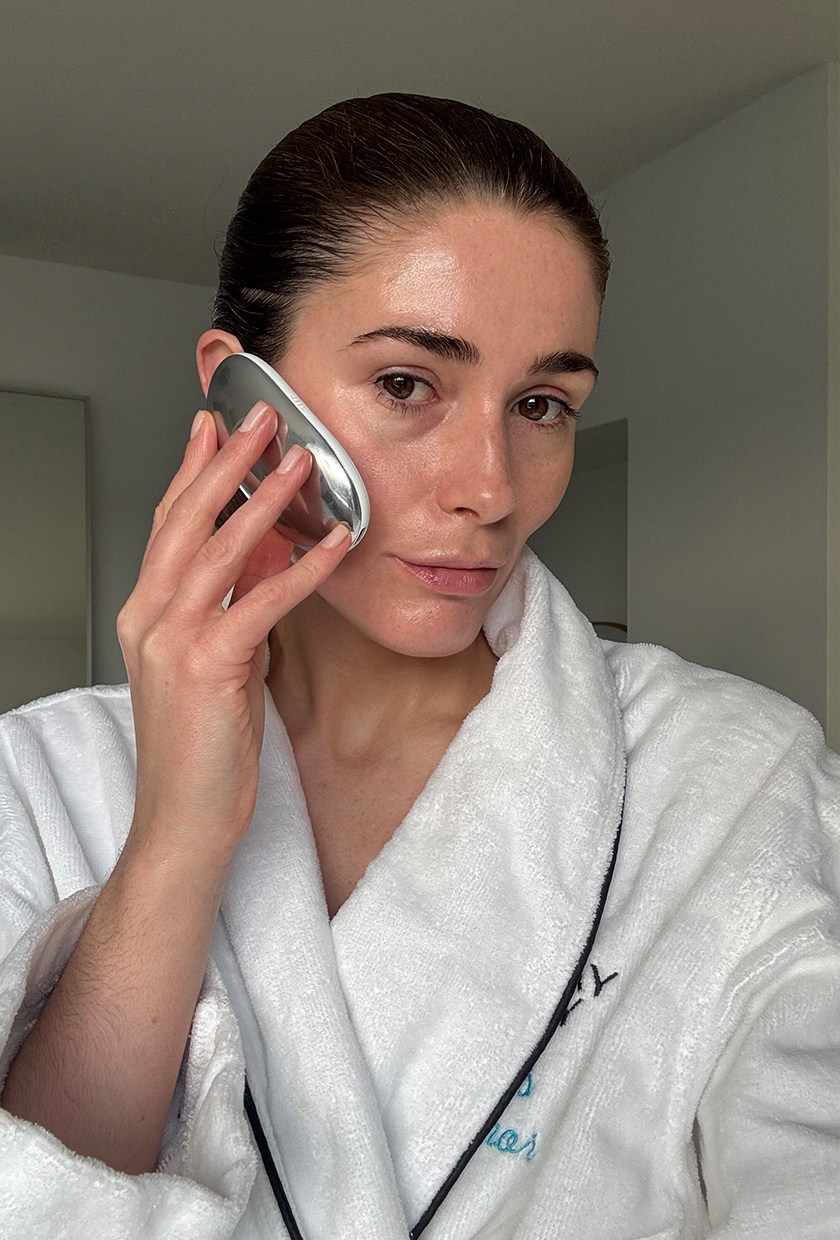
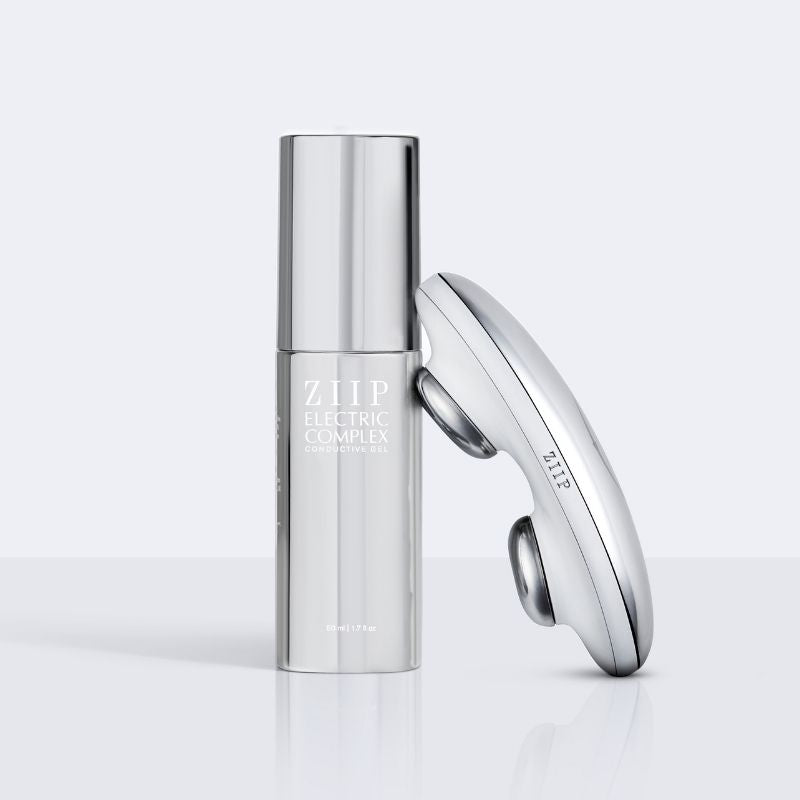
For
- Uses both nanocurrent and microcurrent tech
- Reduces wrinkles by 28% in 6 weeks
- Stimulates ATP and boosts collagen
- Smooths wrinkles and fine lines
- Electrical muscle stimulation helps to lift and tone facial muscles
- Treats pigmentation and age spots
Against
- Expensive price tag
- You need to continue buying the conductive gel to use it with
- You need to use it consistently to see results
What is the Ziip Halo?
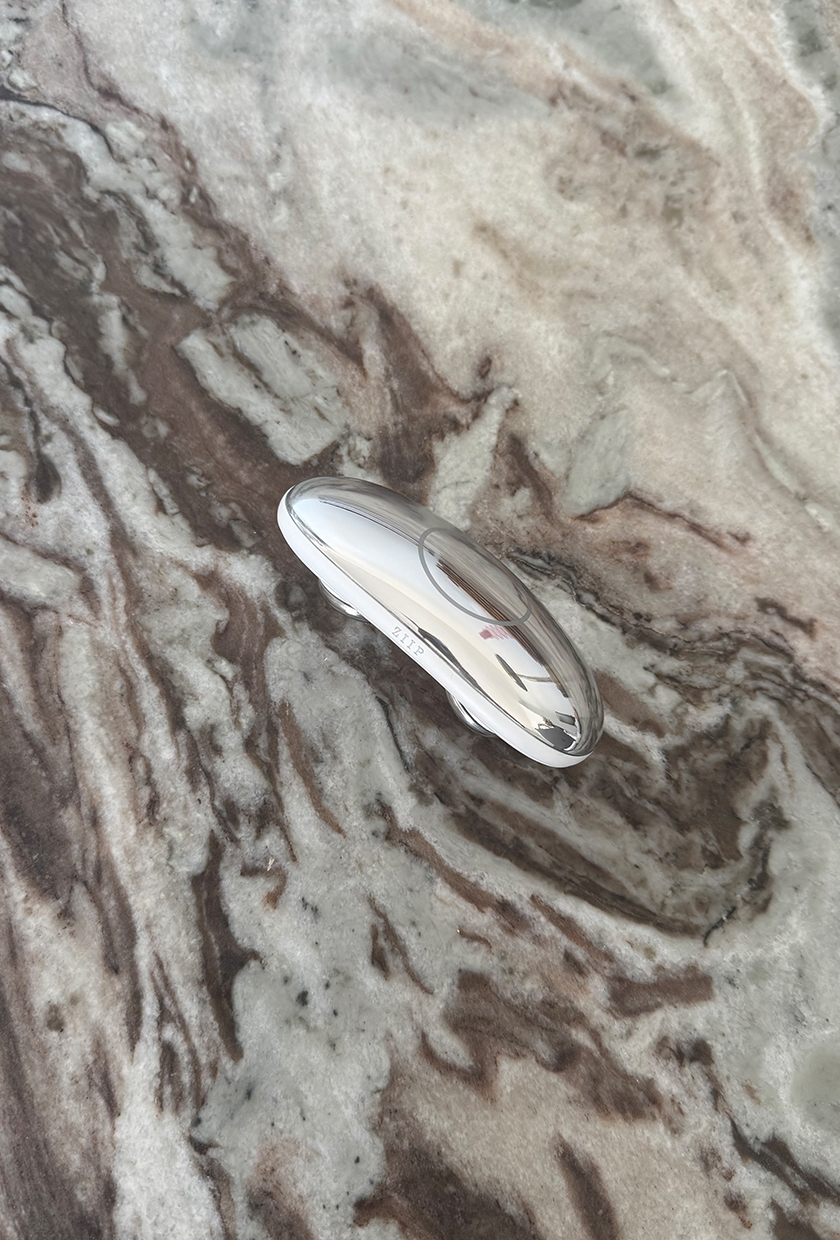
The Ziip Halo device uses microcurrent and nanocurrent technology to lift, tone and clear the skin. The device looks like a small computer mouse and features two metal probes that conduct the electrical currents.
The two electrical currents work in harmony to target a wide range of skin concerns. From wrinkles and sagging to blemishes, pigmentation, and lackluster texture, this powerhouse device is all about boosting your skin health at a cellular level while making your skincare work harder and absorb better too.
The microcurrent is the more intense of the two currents, which stimulates the facial muscles, clearing bacteria from the skin, while boosting ATP production for an immediate lift and rejuvenation. This is the type of electrical current you may have seen on TikTok that makes your muscles twitch involuntarily.
Meanwhile, the Nanocurrent is a gentler, more soothing current that mimics your body’s natural electrical pulses, encouraging skin cell renewal and repair to rejuvenate your complexion.
Alongside the device, the set also comes with the Ziip Electric Complex Conductive Gel (£30), which is applied before the treatment to guide the current into the skin. You can also purchase the Crystal (£70), Silver (£70) and Gold (£120) conductive gels, which are packed with different skincare ingredients to help enhance your results and meet your skin goals.
How Does the Ziip Device Work?
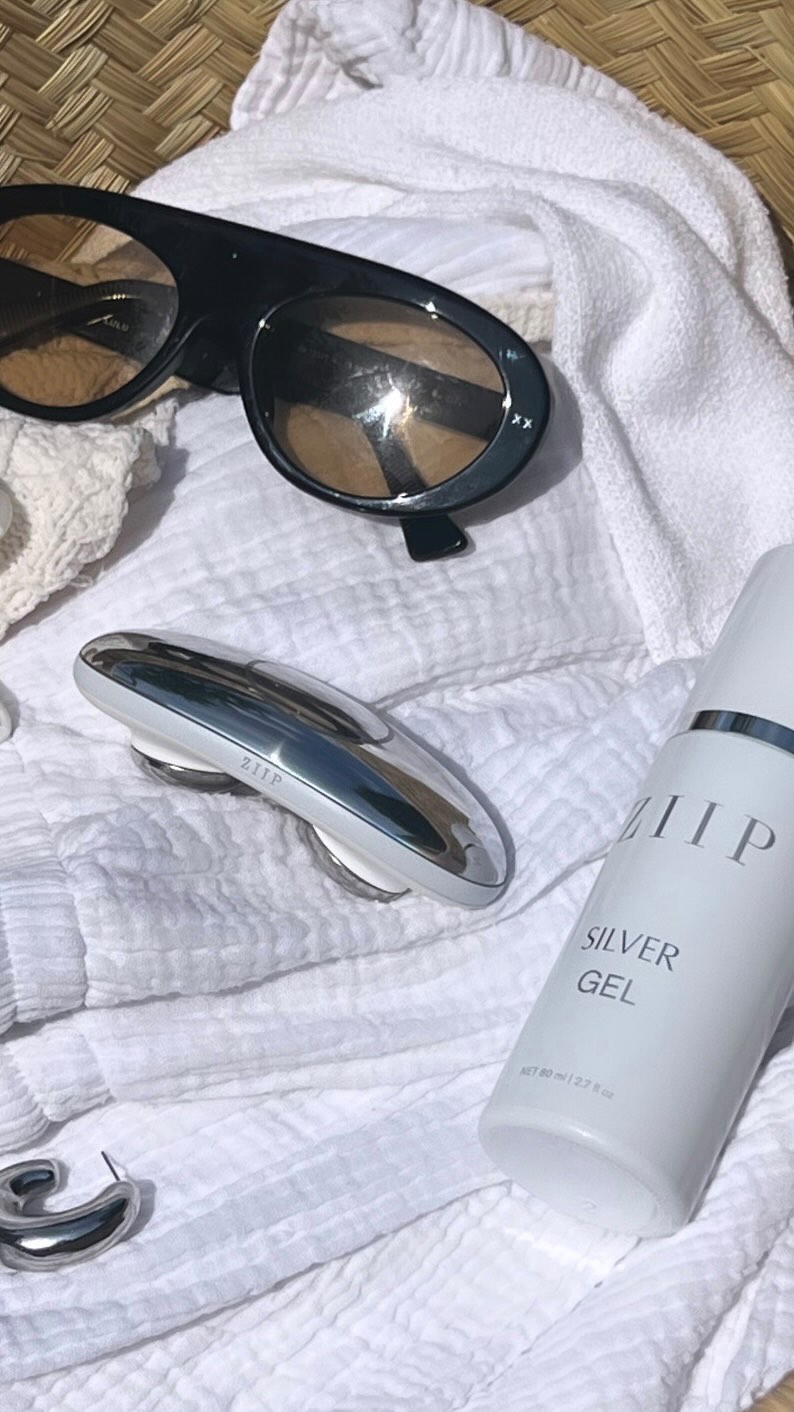
The Ziip uses electrical microcurrent and nanocurrent (in the range of 900nA), which provide different benefits to the skin. It primarily uses nanocurrent as its main wavelength to treat the skin and microcurrent to lift and tone the facial muscles.
What is Nanocurrent?
"Nanocurrent is used to reestablish a tight appearance on our faces by stimulating the production of collagen formation through an electric current," explains Lisa Franklin, founder of Lisa Franklin Clinic Privé. "It accomplishes this by safely reacting with important skin cells and tissues to generate kinetic heat, which encourages the skin to organically generate new collagen fibres and more of the skin's natural plumping and moisturising ingredient, hyaluronic acid."
Nanocurrent also boosts the creation of ATP [aka adenosine triphosphate, which is slightly less catchy], which, as we become older, drops, explains Franklin. "This enables your cells to interact and repair themselves while also replenishing their stored energy. This results in skin that is healthy-looking, elevated and radiant."
What is Microcurrent?
Microcurrent, however, works in a slightly different way, explains Franklin, who offers this treatment via a computer-aided cosmetology instrument, or CACI, in her clinic. "Microcurrent focuses on exercising the muscle tone beneath the skin, enabling [the muscles] to strengthen while also improving cellular metabolism. Microcurrent treatments are more commonly used as a preventative step for people who want to slow down the natural look of ageing on their skin."
What makes the Ziip different to the NuFace?
If you're doing your research into facial sculpting devices, you'll have noticed that there are several on the market, with the Ziip and the NuFace being the most popular. Both are oriented towards addressing signs of skin ageing like loose, sagging skin, fine lines, and wrinkles—and both do so by using electric currents. What sets the two apart is that the NuFace solely uses microcurrent, while the Ziip has the addition of nanocurrent.
"While NuFace and Ziip are similar, microcurrents and nanocurrents are different enough that they complement each other well and can be used together," says Franklin.
How to Prepare for a Ziip Treatment
To begin your treatment, you apply the conductive gel all over your face and neck. You want to apply a generous amount, as this allows the device to conduct the currents into the skin while making the treatment more comfortable too. It can also be left on once you've finished your treatment. However, I found it to be quite sticky, so I would choese to wash this off my face if I was planning to wear makeup and instead choose to leave it on overnight if I was using the device before bed.
What to Expect From a Ziip Treatment
What makes the Ziip Halo device so great is the accompanying app that you can download onto your phone. The app features 13 different treatments and three different plans to target different areas of your face, so you can tailor your treatment to the specific areas or concerns you want to address on any given day. You'll find everything from treatments to treat jowls or lift the brows, right through to a 30-day transformation plan to really get the most out of your device.
You can then sync these treatments to your device via Bluetooth by simply turning on your device and loading the treatment onto your Ziip, which takes virtually seconds. For each treatment, you can watch and follow along with a video of Melanie Simons as she guides you through each treatment. They are also updated regularly, so regardless of when you bought your device, you'll have access to the latest treatments on the app.
The treatments range from All Inclusive (an all-over treatment to give the skin a glow, soften fine lines and sculpt the facial muscles) to more targeted treatments, such as Depuff and Brow Lift, which help to treat eyes and create a wide-awake, lifted effect. There is also a Problem Solver treatment to target blemishes and pigmentation, and lifting and sculpting treatments designed to depuff the skin, lift the jawline and sculpt the cheekbones.
Treatments last between two and 12 minutes, so they can easily be slotted into your day. You can also "stack" different treatments by conducting them one after the other if you have a special event or want to give yourself an all-bases-covered type of treatment.
What Does the Ziip Feel Like?
Depending on the treatment, you might experience some tingling or involuntary muscle twitching as you pass the device over your skin. As I moved over areas of breakouts on my chin and jaw, I could feel a tingling sensation on these areas as the current passed through my skin. The currents help to draw out bacteria in the skin to help clear your breakouts faster.
While testing other treatments, my lips would occasionally quiver as I moved the Ziip Halo around my mouth, and I could feel a tingling sensation in my teeth. This was entirely painless (and Simons explains that this is totally normal to experience), but it did feel odd at first. It takes a little while to get used to the sensations, but I promise it's totally pain-free. You'll just need to get on board with some random muscle twitching.
Ziip Device: Before and After Treatment
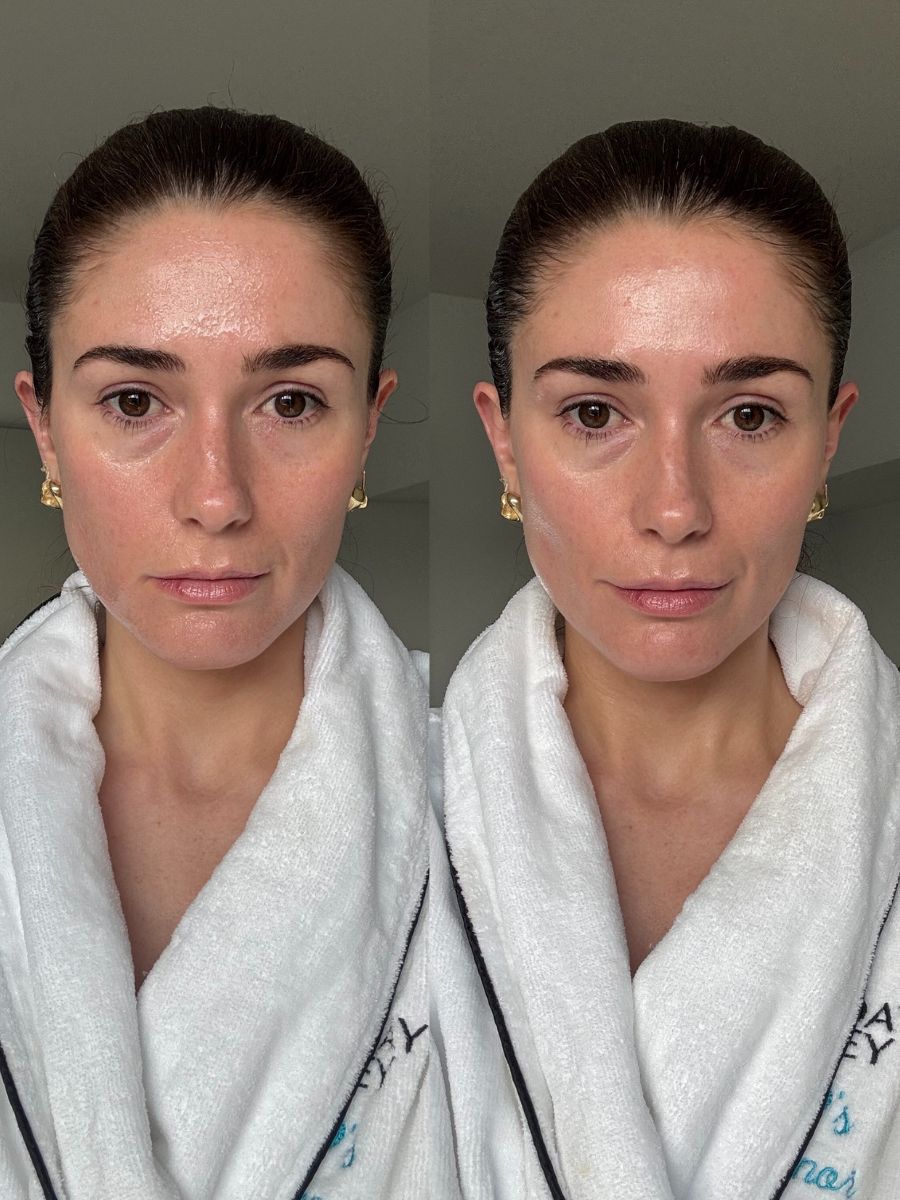
Before and immediately after using the Ziip Halo.
Here is my before and after, taken right after trying the Ziip Halo 'All Inclusive' treatment which is 12 minutes long and targets the whole face. While the results are subtle, I can see some more definition in my cheekbones and lift in my brows. During the treatment, Simons mentions that it's the next day you see the skin benefits, and she's right; the next day, my skin was beaming with a healthy glow, and my makeup applied like butter.
Is the Ziip Device Worth It?
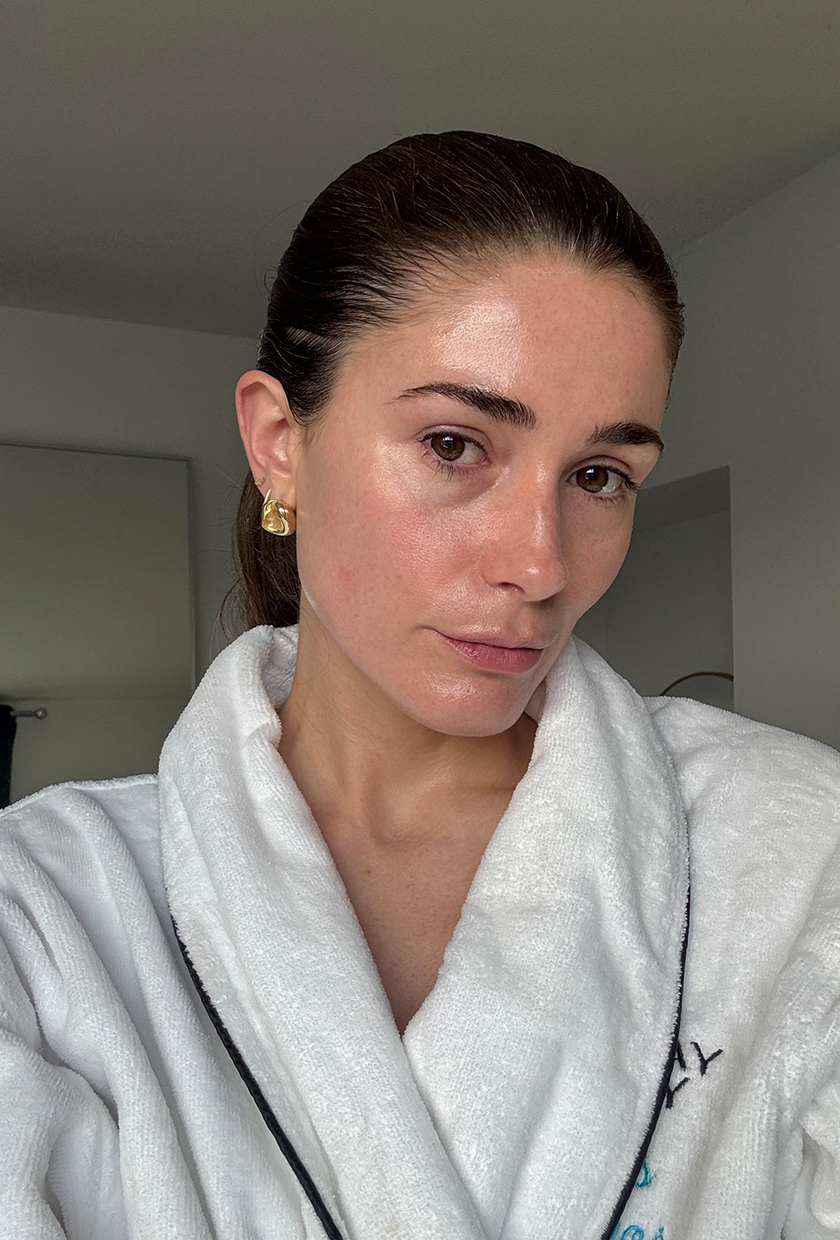
My skin after using the Ziip device for one month.
In my honest opinion, the Ziip Halo device is worth it, but the verdict depends on what you want from the device and how high your expectations are. For example, I found the Problem Solver treatment worked wonders at taking down blemishes and pigmentation, and I liked that I could actually feel it working on areas that are breakout-prone.
However, while the lifting and sculpting treatments like the All Inclusive treatment did make my complexion look more awake, did it give me a snatched brow and jawline? Not exactly. My eyes looked more open and awake, and my cheekbones looked slightly more defined, but I didn't end my treatment looking like Bella Hadid, sadly.
However, the appearance of my skin really did improve over the course of testing it. My complexion looked brighter and even, and on the evenings when I left the conductive gel on overnight, I found that I woke up with really hydrated, calm and glowy skin the next day. I also noticed a softening of the lines on my forehead. I loved the instant results from using this, and I could see my skin improving after a couple of weeks' use.
I think this is worth the investment if you plan on using it every day. Much like going to the gym (and getting the most out of your membership fee), you only get stronger with regular practice, and the same goes for facial devices such as this. If you commit to using this regularly, the cost per use is minimal, and you'll see results. However, if you find that you buy into skincare devices and they end up gathering dust in your drawer, then you might be better off investing in a course of microcurrent/nanocurrent treatments in a clinic. It's also worth bearing in mind that you'll need to purchase conductive gel top-ups, which start at £30 for the Electric Complex Gel and go up to £120 for the Golden Conductive Gel.
Overall, if you want a skincare device to accompany your skincare while giving you some temporary lifting and sculpting on the days you want it the most, then this will be a worthwhile investment for you.
Shop now:
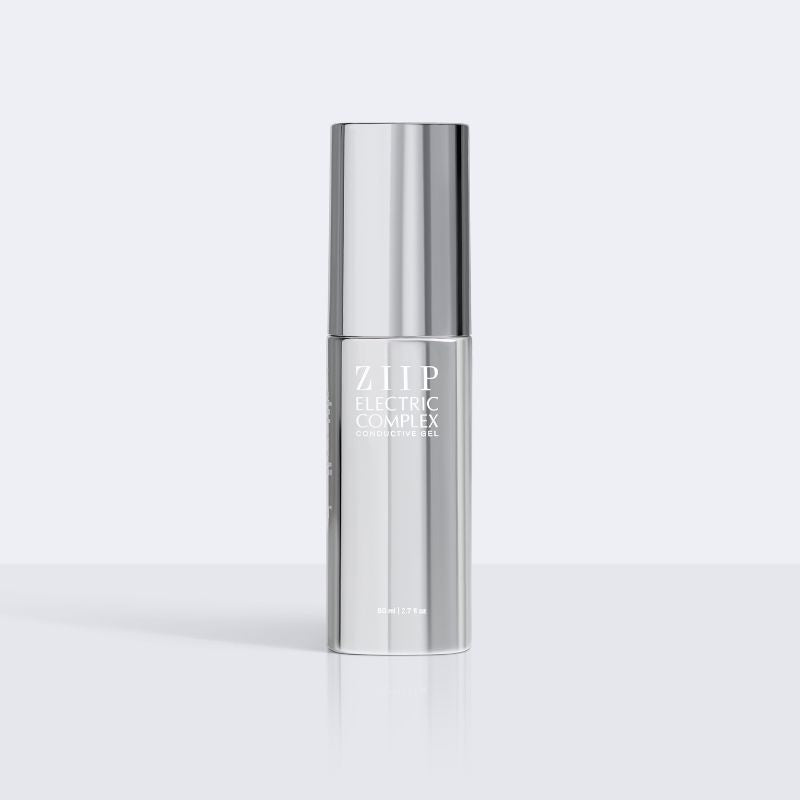
This is the standard Ziip conductive gel that comes in your starter kit. It doesn't contain any skincare actives, so it's a great beginner-friendly option or ideal for those who want something fuss-free to use their Ziip Halo with.
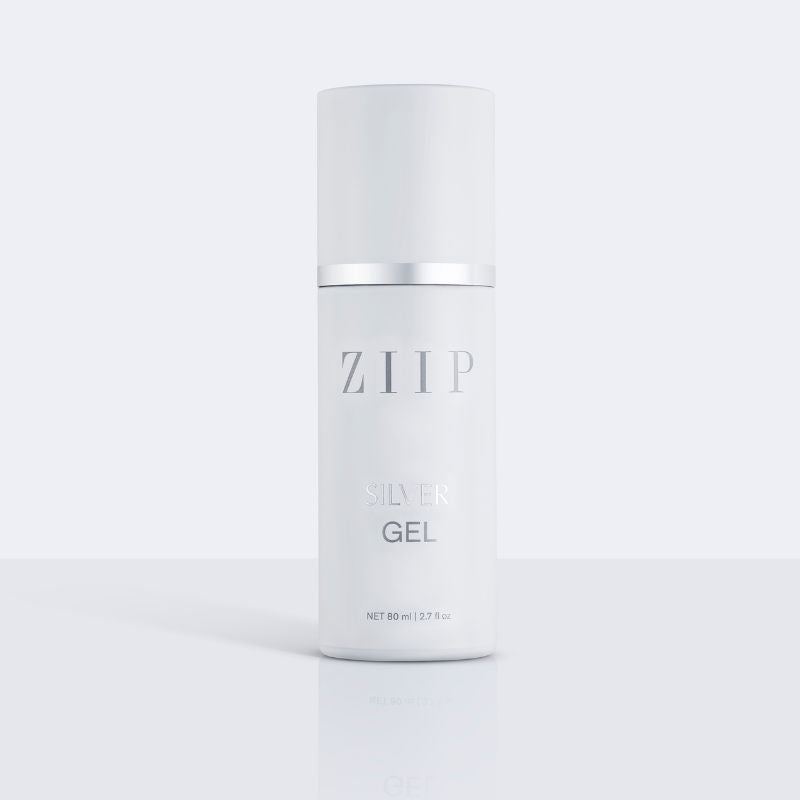
The Silver Gel contains hyaluronic acid, cucumber, aloe and crushed pearl in the formula, which work in tandem to hydrate and plump dry or dehydrated skin types.
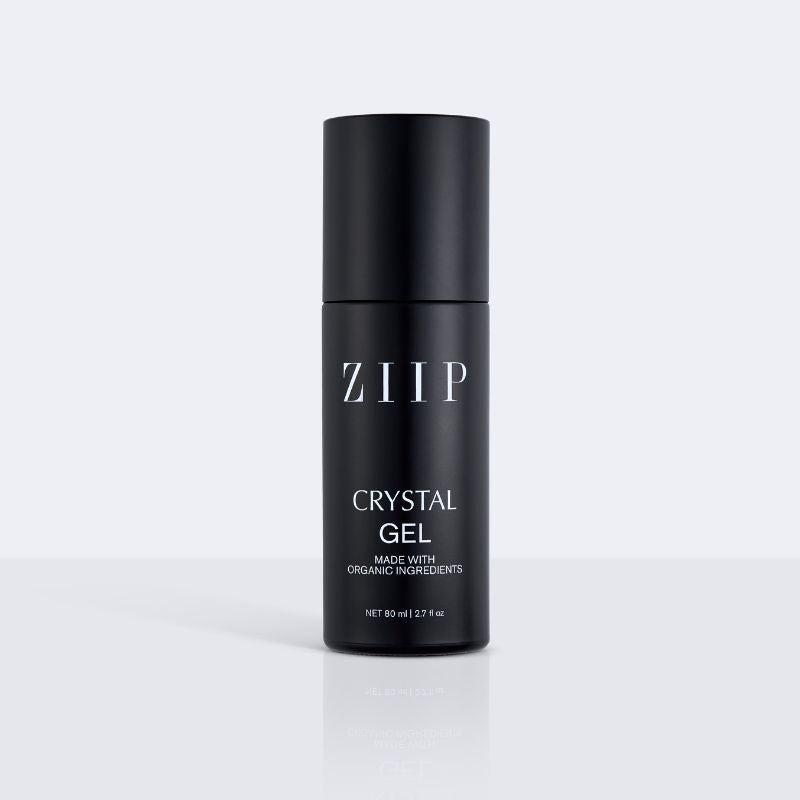
Want more of a glow? Ziip's Crystal Gel contains glutathione, which, when paired with the electrical currents, bestows an amazing glow to the skin. It also contains veronica flower and picea mariana extract to help even the skin tone.
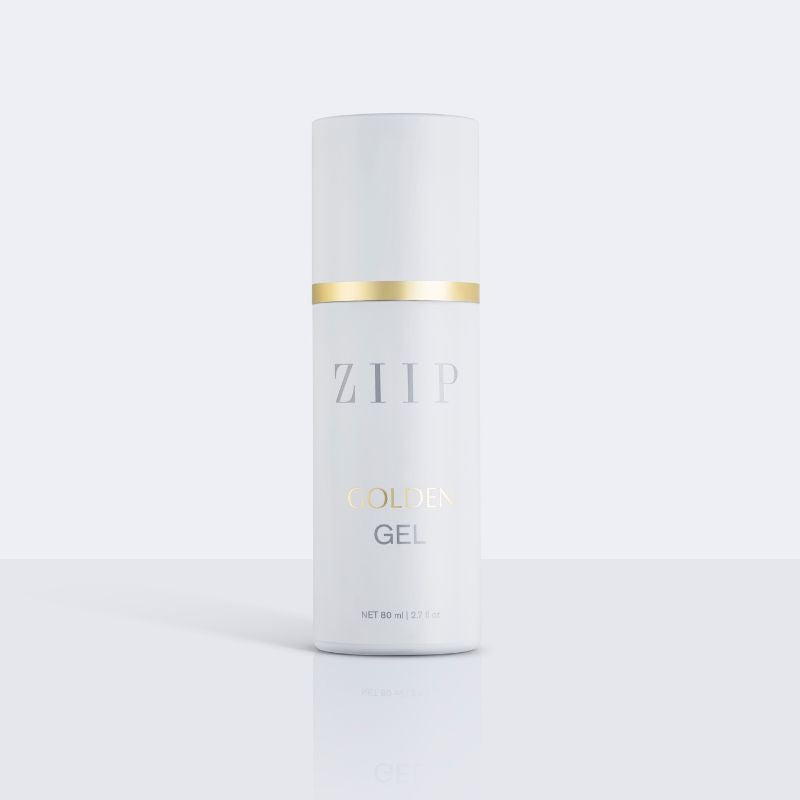
This potent serum contains collagen-stimulating active ingredients like growth factors and hematite, as well as niacinamide and 24-carat gold.
At-Home vs. In-Clinic Nanocurrent and Microcurrent Treatments
So how do at-home microcurrent and nanocurrent devices compare to in-clinic treatments? "The currents used in the professional machines in-clinic have a stronger depth than a specialist can manage the safe performance of, working on each muscle for even distribution," says Franklin. "We work on a treatment programme with our CACI machines, which safely work the muscles and increase the current over the course of several weeks. This provides longer-term results by building and strengthening the muscles gradually and correctly."
While a course of treatment is best to achieve optimum results, you can also get great results from one treatment. "If you have a special event or wedding, a one-off treatment can give you an immediate glow, and results can last for a few days," adds Franklin. The cost of a treatment will vary depending on your location, but in London, you can expect to pay around the £100 to £140 mark for a single microcurrent treatment. So, depending on your needs, you might find the Ziip an investment that works out to be a better value in the long run and an affordable alternative to more invasive 'tweakments' like Botox and filler.
This story was previously published at an earlier date and has since been updated.

Eleanor Vousden is the beauty editor for Who What Wear UK. She was previously deputy editor at Hairdressers Journal, health writer at Woman & Home and junior beauty editor at Powder. She has also contributed to Wallpaper and Elle Collections.With a degree in fashion journalism from the London College of Fashion, she has 10 years of industry experience and has been highly commended at the BSME Talent Awards for her work on Powder and also contributed to the title winning Website of the Year at the PPA Awards.Eleanor’s journalistic focus is providing readers with honest and helpful beauty content. She has interviewed celebrity makeup artists, hairstylists and dermatologists throughout her career, as well as celebrities such as Hailey Bieber, Sarah Jessica Parker and Scarlett Johansson.
-
 Rosie Huntington-Whiteley's Burberry Bikini Is About to Go Viral
Rosie Huntington-Whiteley's Burberry Bikini Is About to Go ViralKickstarting summer style.
By Drew Elovitz
-
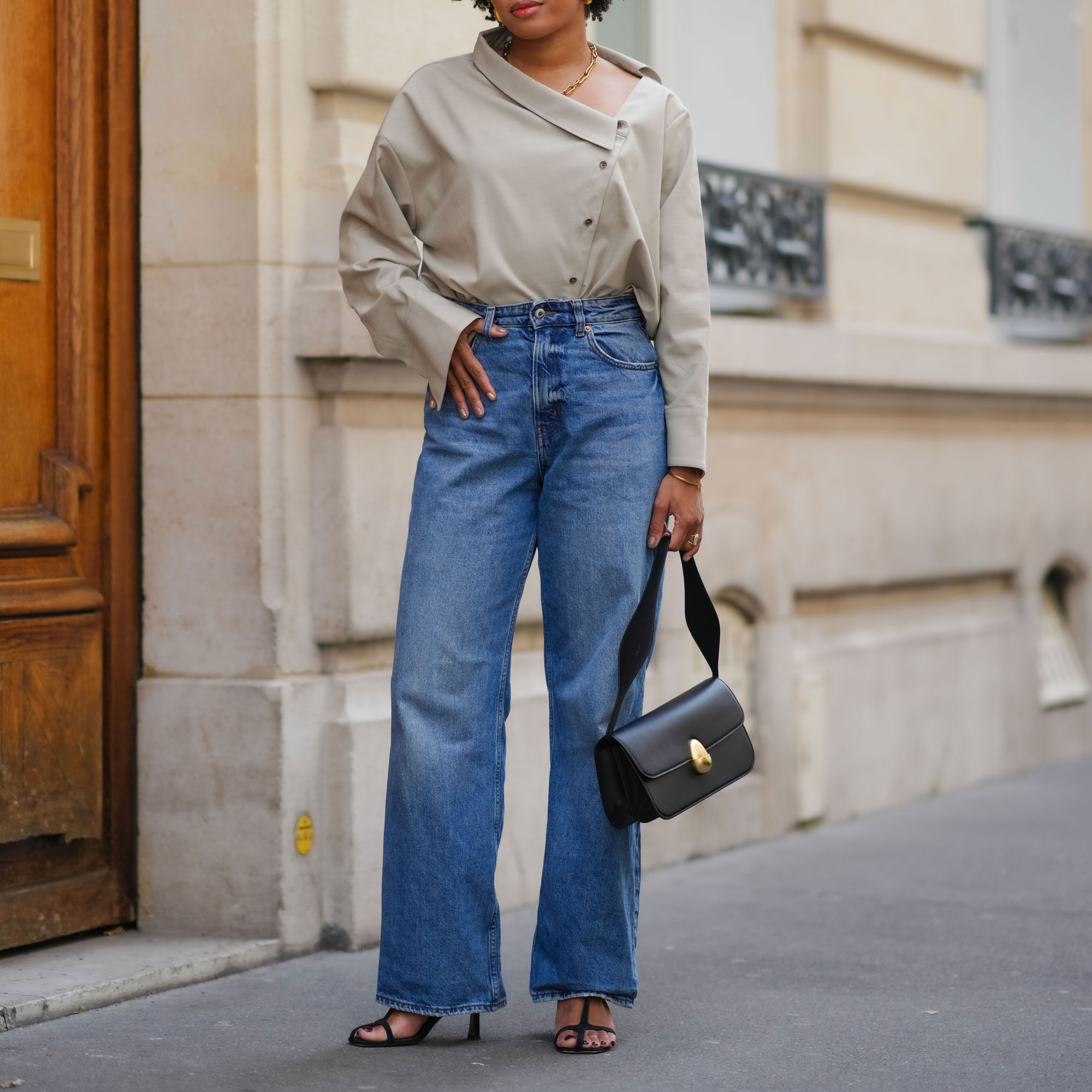 Nordstrom Just Put Its Sale on Sale—These 11 Basics Are Regret-Proof
Nordstrom Just Put Its Sale on Sale—These 11 Basics Are Regret-ProofPeep our top picks.
By Drew Elovitz
-
 4 Trends All the Tennis Girlies Will Be Wearing in 2025
4 Trends All the Tennis Girlies Will Be Wearing in 2025According a top designer at Wilson.
By Erin Fitzpatrick
